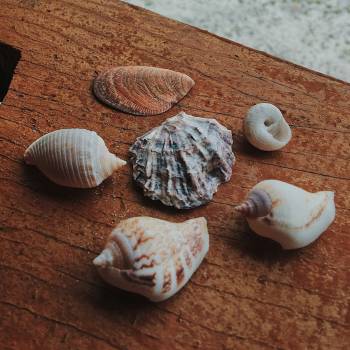Have you ever been in a hardship that drove you to think, or say:
“My situation today is no better than yesterday. I’ve done all the things I could possibly do, but my problem remains. I don’t know what else to do…”
May Allah subhanahu wa ta'ala facilitate our affairs, remove our worries, and enter us in Jannah where there won’t be any more sadness, and difficulty. Ameen.
But that’s the thing right now, isn’t it? The reality of this dunya is that we will all face hardships in life. Some of us have lost our jobs and livelihood, some have experienced a sudden loss of health, others are tested with personal or family issues. And the people whom we have relied on for help do not have the absolute power to remove our concerns. At times, they too have their own troubles to think about. Some people might even leave and cast us aside for fear of getting caught in the same difficult situation as ours.
And so, after reaching out to so many people, and taking all the possible permissible means to solve our problems, and making countless supplications to Allah subhanahu wa ta'ala to remove these difficulties - and we still see our situation remains unchanged - we may reach a point where we feel deprived of hope, of solutions, of a way out, and we don’t know what else we can possibly do to change our situation.
At that peak of our difficulties, there are three critical matters that we should always remember and do:
🟣 1. Husnu-dzon billah - Think well of Allah.
Our ‘ibaadah to Allah subhanahu wa ta'ala consists of speech (eg. making du’a, or doing dzikrullah), actions (eg. establishing the salah, or doing Hajj), and the heart (eg. iman in Allah, or sincerity in the heart). We often focus on the physical aspect of our worship so much, that we neglect the importance of the ‘ibaadah of the heart - and that includes husnu-dzon billah, to think well of Allah. Rasulullah salla Allahu ‘alayhi wa sallam (ﷺ) said:
“There is a piece of flesh in the body that if it becomes good (reformed), the whole body becomes good; but if it gets spoiled, the whole body gets spoiled - and that is the heart.” [Sahih Al-Bukhari 52]
This hadith also means that if our ‘ibaadah of the heart is corrupted, so will the rest of our acts of worship. If we always have bad thoughts about Allah, that He would not help us, would not remove our hardship, would not forgive us, wouldn’t it corrupt our iman and the rest of our ‘ibaadah as well? This is why Rasulullah ﷺ said that husnu-dzon billah is from the perfection of ‘ibaadah to Allah!
He ﷺ said: “Indeed, having good thoughts concerning Allah is from the perfection of the worship of Allah.” [At-Tirmidhi 3604f | Graded Hasan by Darussalam]
As believers, our thinking process must always be anchored to husnu-dzon billah, to think well of Allah, no matter how difficult life becomes for us. Have yaqeen (conviction) of the vastness of His Rahmah, that He subhanahu wa ta'ala knows our condition, that He has the absolute power to change our situation for the better, and that He will reward us immensely for our patience in this dunya and akhirah.
Our Deen emphasizes us to have husnu-dzon billah in all matters, even at the most critical and severest condition where one has truly resigned from expecting his situation to ever change - and that is at one’s deathbed.
Rasulullah ﷺ said: “None of you should die, but hoping only good from Allah, the Exalted and Glorious.” [Sahih Muslim 2877c]
At the peak of those moments of difficulties one faces at his deathbed, where a person can no longer pray, or read the Qur’an, or even murmur words of dzikrullah due to the severity of his condition, there is one great act of worship that he can, and must do - and that is husnu-dzon billah. If our Deen advocates us to think well of Allah subhanahu wa ta'ala even nearing our death, then what about when we’re still alive and still capable?
Rasulullah ﷺ said that Allah subhanahu wa ta'ala says: “I am just as My slave thinks I am (i.e. I am able to do for him what he thinks I can do for him)...” [Sahih Al-Bukhari 7405]
He ﷺ also said that Allah says: “I am as My servants expects of Me. If he thinks good of Me, he will have it. If he thinks evil of Me, he will have it.” [Sahih Ibn Hibban 639 | Graded Sahih by Al-Arna’ut]
So have yaqeen that when we think good of Allah, He subhanahu wa ta'ala will grant abundance of goodness to us in return. A Muslim’s positive mindset is not based on wishy-washy fluffs, but it is anchored to the One Whose handhold will never break!
🟣 2. Increase in our istighfar to Allah, as well as return the rights of those whom we have oppressed.
Brothers and sisters in Islam, one of the reasons why some calamities befall upon us is because of our sins. Allah subhanahu wa ta'ala says:
“Whatever of good reaches you is from Allah, but whatever of evil befalls you is from yourself.” [Surah An-Nisa’ 4: 79]
“And whatever of misfortune befalls you, it is because of what your hands have earned. And He (Allah) pardons much.” [Surah Ash-Shura 42: 30]
The reality is that our sins have consequences in both dunya and akhirah. Perhaps the difficulties that we face in this dunya are due to our acts of disobedience that we did in the past, but have been left unrepented. Or perhaps we have made our family or friends upset with our bad behaviour, and we have not apologized to them for it.
So make sincere tawbah to Allah subhanahu wa ta'ala, and increase in istighfar. And if we have oppressed someone - such as stole someone’s rights, or hurt someone - then we need to resolve it post-haste by returning what we took to its rightful owner, as well as seeking their forgiveness.
Allah says in the Qur’an: "I (Prophet Nuh ‘alayhis-salaam) said (to his people): Ask forgiveness from your Rabb; Verily, He is Oft-Forgiving. He will send rain to you in abundance. And give you an increase in wealth and children, and bestow on you gardens, and bestow on you rivers.” [Surah Nuh 71: 10-12]
When we make sincere istighfar to Allah, not only will we earn His Forgiveness and the removal of our hardship, but Allah will facilitate our worldly matters as well. Allah subhanahu wa ta'ala will grant us numerous blessings, and make things easy for us. Indeed, He is Al-Ghafoor Ar-Raheem.
🟣 3. Have taqwa of Allah.
And lastly, the third thing we must do in order to seek relief from Allah subhanahu wa ta'ala is to immediately rectify ourselves with taqwa. Taqwa is abandoning disobedience, and practising obedience. Anyone who is in a difficult situation must draw closer to Allah by shunning away sins, and doing good deeds. Allah Himself tells us that taqwa is a means of a way out in every difficult situation. He subhanahu wa ta'ala says in the Qur’an:
“And whosoever has taqwa of Allah, He will make a way for him to get out (from every difficulty).” [Surah At-Talaq 65: 2]
“And He will provide him (the person of taqwa) from (sources) he never could imagine…” [Surah At-Talaq 65: 3]
“...and whosoever has taqwa of Allah, He will make his matter easy for him.” [Surah At-Talaq 65: 4]
Notice that all of these ayaat about taqwa of Allah are from Surah At-Talaq (divorce). It is as if Allah is giving us an example of a very difficult and traumatizing situation that anyone might face - divorcing one’s spouse - yet the Help of Allah is always near by virtue of one’s taqwa. Allah teaches us that when we’re in a very difficult condition, we must never abandon taqwa of Allah, never miss our salah, never be disrespectful to our parents, never forsake the fardh (obligatory duties) that are due upon us. If we have taqwa of Allah even at the lowest point in our lives, then know for sure that Allah’s Help is near. Allah will never abandon the one who has taqwa of Him.
Brothers and sisters in Islam, when there is no helping hand to reach out to, and all options have been exhausted, when it feels as though all doors of relief are shut closed one by one on us, when it seems like there is no possible way out - it is exactly at that peak of difficulty that Allah wants us to realize something: that only He Alone can change our condition, that we must turn and depend on Him, that we recheck ourselves and re-establish our relationship with our Rabb - the Protector, and the Maintainer of everything.
Rasulullah ﷺ said: “Know that there is much good in being patient with what you detest, victory will come with patience, relief will come with affliction, and with hardship will come with ease.” [Musnad Ahmad 2804 | Graded Sahih by Ahmad Shakir]
May Allah make us believers who always think well of Him, who always turn back to Him in sincere repentance, and have taqwa of Him during both easy and difficult times. آمـــــــــين
~ Aida Msr 🌸
___
References:
- Tafsir Ibn Kathir
- Sunnah.com
- Abuaminaelias.com
 Aida Masuri Mustafa
Aida Masuri Mustafa 








Maryam Hamza
Aida Masuri Mustafa